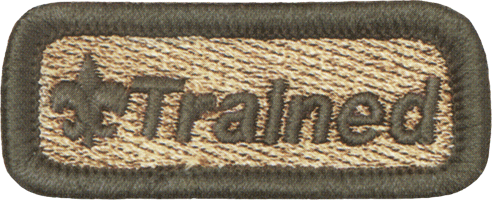
Every six months (in May and November) Troop Elections are held for the positions of Senior Patrol Leader and Patrol Leader. The Senior Patrol Leader is the top youth leader of the Troop and is responsible for making sure the program is carried out. The Patrol Leader is the top leader of his Patrol and is responsible for making sure his Patrol works together to get tasks completed. The Senior Patrol Leader must hold the rank of Star or higher and the Patrol Leader must serve his Patrol, and not another Patrol. The Senior Patrol Leader election is held first, he then selects the Assistant Senior Patrol Leader. The Scout candidate with a majority of the vote wins the election. Patrol members then vote for their Patrol Leader. The Patrol Leader then also selects his Assistant. With the exception of the New Scout Patrol, Patrol Leaders and Assistant Patrol Leaders must hold the rank of Second Class or higher. In the event of tie vote for any position, there is a re-vote for the two Scouts with the most votes. If again there is a tie then the Scoutmaster will cast the deciding vote; his decision will be final. If only one Scout runs for any position, he automatically is given that job. The newly elected Senior Patrol Leader and the Assistant Senior Patrol Leader—with advice and approval of the Scoutmaster—select Scouts to fill other junior leadership positions within the Troop. Scouts will normally hold only one job at a time.
Scouts must be present to vote and may not vote by proxy.
Introduction to Leadership Skills for Troops Training (ILST) is held within two(2) weeks of Troop elections. This is either a camp-out or a Saturday-only event. In either case, the purpose of the training is to acquaint the new leadership corps with each other and equip them with the skills necessary to succeed in their new position. All Scouts who assume a new position (even if they held one once before) must attend in order to be qualified as "Trained" and wear the Trained Patch. The Scoutmaster, his assistants, and other adults from the Troop committee conduct Introduction to Leadership Skills for Troops Training.

On the first Thursday of each month at 7:30 P.M., a Patrol Leaders Council (PLC) is held at the Cafeteria (South County Middle School, 8700 Laurel Crest Drive, Lorton, VA 22079). The Patrol Leaders Council is presided over by the Senior Patrol Leader or in his absence, the Assistant Senior Patrol Leader. If the Assistant Senior Patrol Leader is also absent, the Scoutmaster decides who will preside. The PLC consists of the following personnel: Senior Patrol Leader, Assistant Senior Patrol Leader, all Patrol Leaders and/or their Assistants, Troop Guide(s), Scribe, and a minimum of two adult leaders (one being the Scoutmaster). If both a Patrol Leader and his Assistant are present, only the Patrol Leader may vote. The Scribe is a non-voting member. Any Scout, parent, or other junior leader who wishes to view the Council is welcome to attend the meeting. However, they may not vote in the Council. It is the job of the Council to assign Patrol duties, finalize meeting program needs and instructions, decide what shall happen on the upcoming camp-out, and finalize plans on what shall take place in the upcoming month.
The Troop Planning Conference meets after Junior Leader Training to set an agenda of the Troop's activities for the upcoming Scout year. The Junior Leaders, with input from the adult leaders, decide what the Troop shall do for the next year, such as merit-badges, camp-outs, and day events. It's main objective is to plan the goals, tentative dates, and themes for camp-outs, and other special activities. Again, only Patrol Leaders Council may vote and the majority rules. When the annual plan is ready, the Senior Patrol Leader presents it the Troop Committee for approval.
Summer Camp is typically a seven-day adventure (we leave on Sunday and return on a Saturday) where Scout skills are acquired and tested. We follow the same rules as we do for all Troop events (e.g., uniform policy, discipline, camp procedures, etc.). Consult the Scout Handbook to determine what gear to bring on a week-long adventure. If the cost of camp presents an unreasonable financial burden, please see or call the Committee Chairmen. All assistance is kept private and confidential.
Other events such as fund-raisers, day trips, Order of the Arrow elections, or service projects may arise throughout the year. Procedures for the events, dates, and times will be discussed at Troop meetings, in mailings, and placed on our web site.